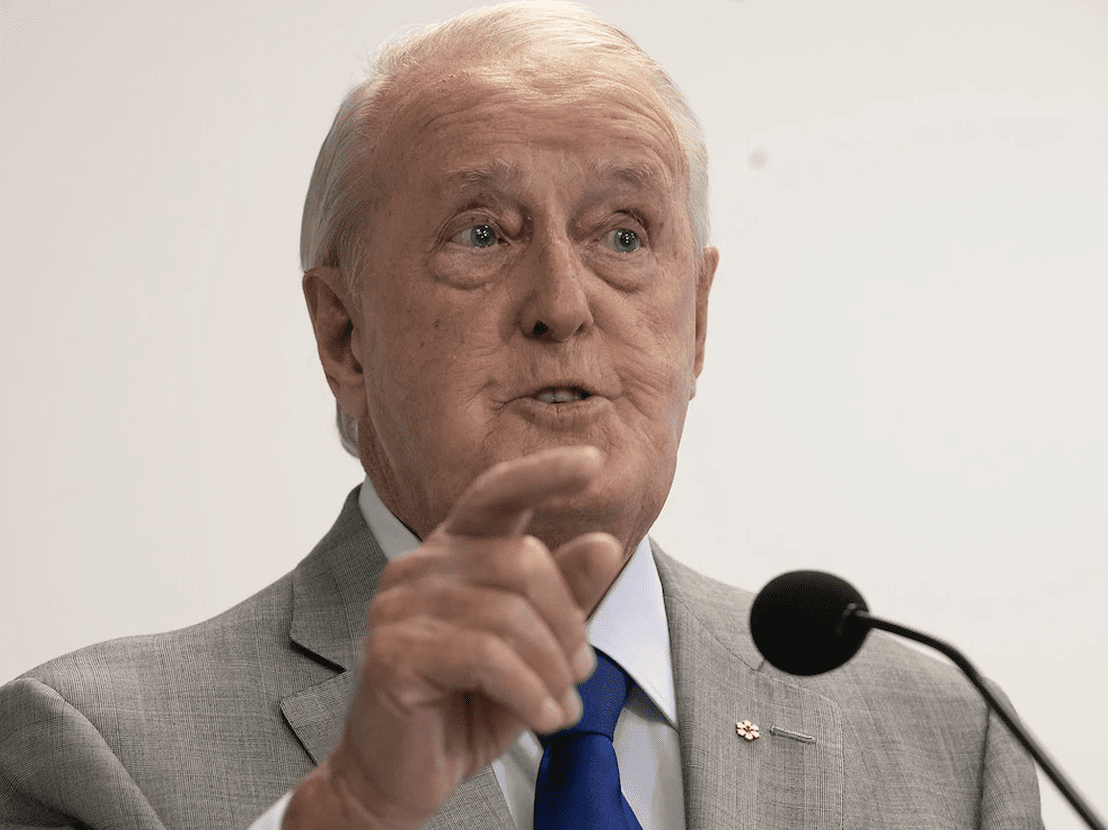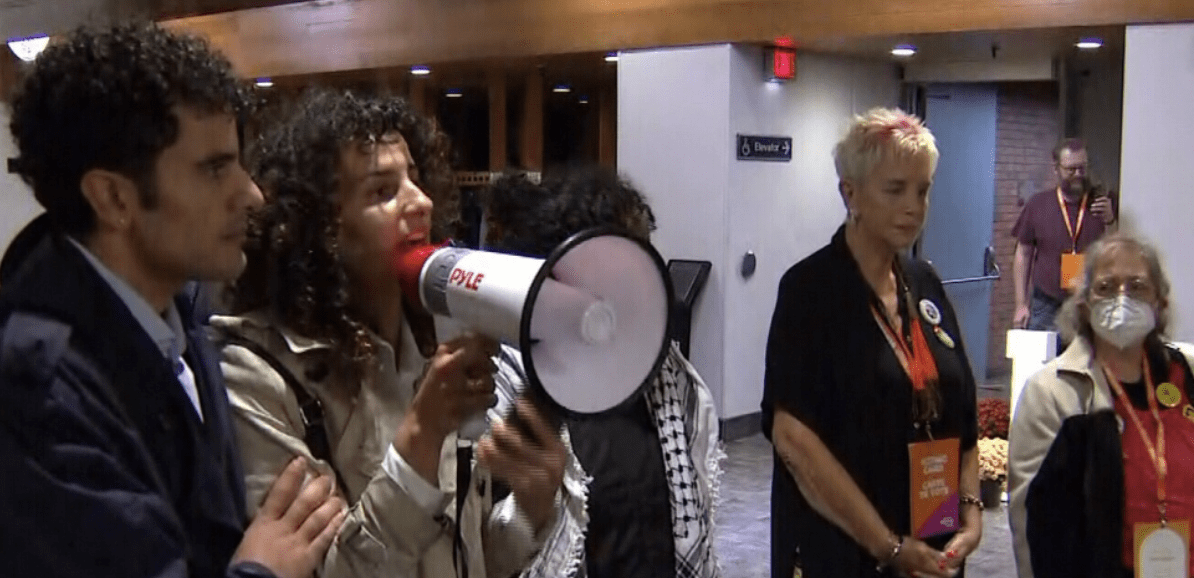The House of Commons voted on a controversial non-binding NDP motion on Mar. 18 that left a sour taste in most politicians’ mouths. It also left one unresolved matter that could open some additional political wounds.
Briefly, NDP MP Heather McPherson tabled the motion on Feb. 13. It was a means of recognizing the state of Palestine in the midst of the ongoing Israel-Hamas war, and was far more critical of Israel’s actions. While the chances of this motion going anywhere seemed remote, the Liberals foolishly didn’t speak with the NDP about making necessary adjustments for over a month. When the NDP forced a vote, the Liberals quickly realized they didn’t have caucus unity to flat-out reject it. The Liberals scrambled to make last-minute adjustments – and barely made it under the wire.
The hastily amended motion passed by a vote of 204-117. The Liberals, NDP and other left-leaning parties supported it. The Conservatives opposed it along with Independent MP Kevin Vuong and three Liberal MPs, Marco Mendicino, Ben Carr and Anthony Housefather.
The unresolved matter relates to Housefather, a Jewish MP who represents the Mount Royal riding in Montreal, Quebec.
He told reporters on Mar. 19, “I’ve had to reflect on last night’s vote. It was a very hard time for me…I will be very honest, I felt that the message I put through about how disturbing the original motion was clearly didn’t prevail…that was a difficult one to lose.”
He was asked whether he felt he could stay in the Liberal caucus. “Right now, I’m reflecting on what happened yesterday. And when I have an announcement…and ended my reflection, which could be whenever, I’ll certainly let you know.” With respect to reflecting on his future with the party, he responded, “I think it’s the first time in my parliamentary career that I’ve had a reflection like this, where I truly felt last night that a line had been crossed. When my party members got up, and cheered and gave a standing ovation to Heather McPherson and the NDP, I started reflecting as to whether or not that I belonged.”
That’s interesting in itself, but an additional wrinkle (or two) was still to come.
In a Mar. 20 interview with Vassy Kapelos on CTV’s Power Play, Housefather said, “I want to reconcile – which I think a lot of Liberal supporters who are Jewish right now are trying to reconcile – is our feelings about Israel, and the existential threat that Israel faces, and the rising tide of anti-semitism, and the place that we landed Monday in the House of Commons vote, and whether or not we fit. So, this is a bigger question than just Anthony Housefather. I think it’s a question of a community.”
Kapelos also asked Housefather about the possibility of moving to another party, namely the Conservatives. “Again, when I say that I’m reflecting, I’m reflecting all options.” When she pressed further, he responded, “Look, I have a lot of Conservative friends and…Conservative colleagues. I’m not at this point engaging in direct discussions to say, ‘hey, I’m crossing the floor.’ But again, I have relationships. And in the same way my Liberal colleagues are talking to me, others are talking to me.”
It’s easy to sympathize with Housefather’s frustration. His party aligned with the NDP and passed a controversial motion that could jeopardize Canada’s relationship with Israel. The original version was far more critical of Israel than Hamas, and the final version wasn’t much better. The motion was amended at the 11th hour, and there was no proper debate and discussion about its contents. He wasn’t asked for input. His views were isolated, along with Mendicino and Carr. He watched his caucus colleagues give a standing ovation to a vile (albeit non-binding) motion that created plenty of confusion in his riding and the Jewish community.
That’s why he’s reflecting on his future in the Liberal caucus – and as a Liberal. Nothing further has happened to date.
If Housefather chooses to sit as a Conservative, that’s fine. Pierre Poilievre would welcome him into the Conservative caucus. Conservative MPs would welcome him, too.
But with all due respect, Housefather doesn’t fit with the Conservatives. He’s been a Liberal since he was a teenager. His Mount Royal riding, which was once represented by the late Prime Minister Pierre Trudeau, has been consistently in Liberal hands since 1940. His political ideology appears to be left-of-centre. He’s supported most Liberal policies since he was first elected in 2015. He’s barely spoken out against Prime Minister Justin Trudeau’s litany of gaffes, foolish remarks and controversies. He was the chair of the Standing Committee on Justice and Human Rights in 2019 that voted to adjourn rather than invite then-Liberal MP Jody Wilson-Raybould to speak a second time during the SNC-Lavalin affair.
Other than supporting issues related to Israel and the Middle East, like this recent motion, I don’t see where he aligns with the Conservatives. You can’t have a real, honest-to-goodness change of heart that quickly in politics. Agreement on a limited number of issues isn’t enough to build a strong relationship with a party and political movement that you’ve largely rejected for decades, either.
None of this means the Conservatives wouldn’t accept him if he crossed the floor. It’s just difficult to perceive how this arrangement could last.
Housefather should therefore sit as an Independent to begin with. It’s a more difficult road in politics, especially when it comes to getting re-elected. That being said, it would give him the ability to speak his mind and vote as he sees fit. He would also have additional time to truly figure out if he belongs with the Liberals or not.
If the Conservatives form government in the next election, and Housefather’s ideological journey truly shifts to the right, then make the move. That’s a better route to a long-lasting political alliance and electoral success.
Michael Taube, a long-time newspaper columnist and political commentator, was a speechwriter for former Canadian prime minister Stephen Harper.












